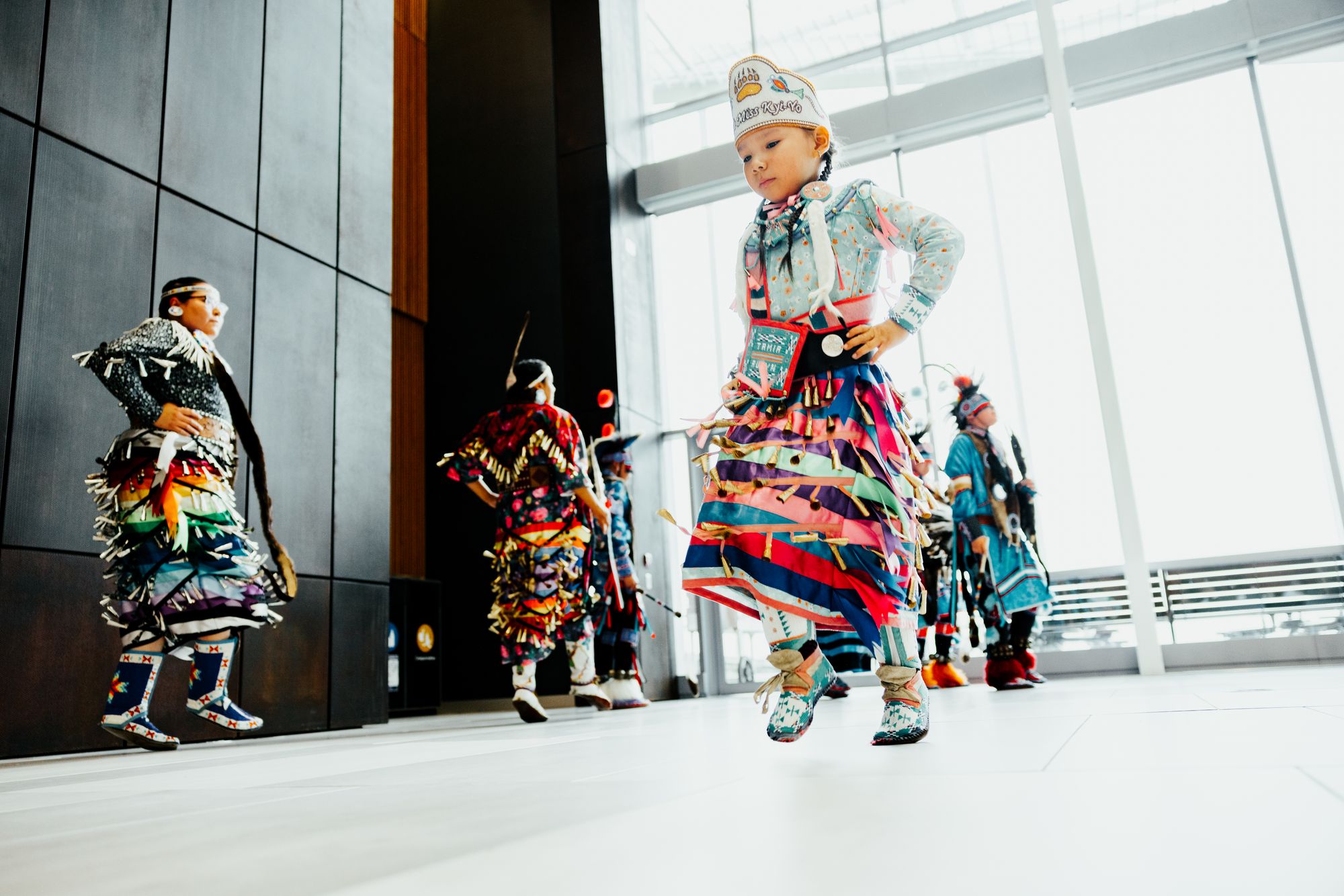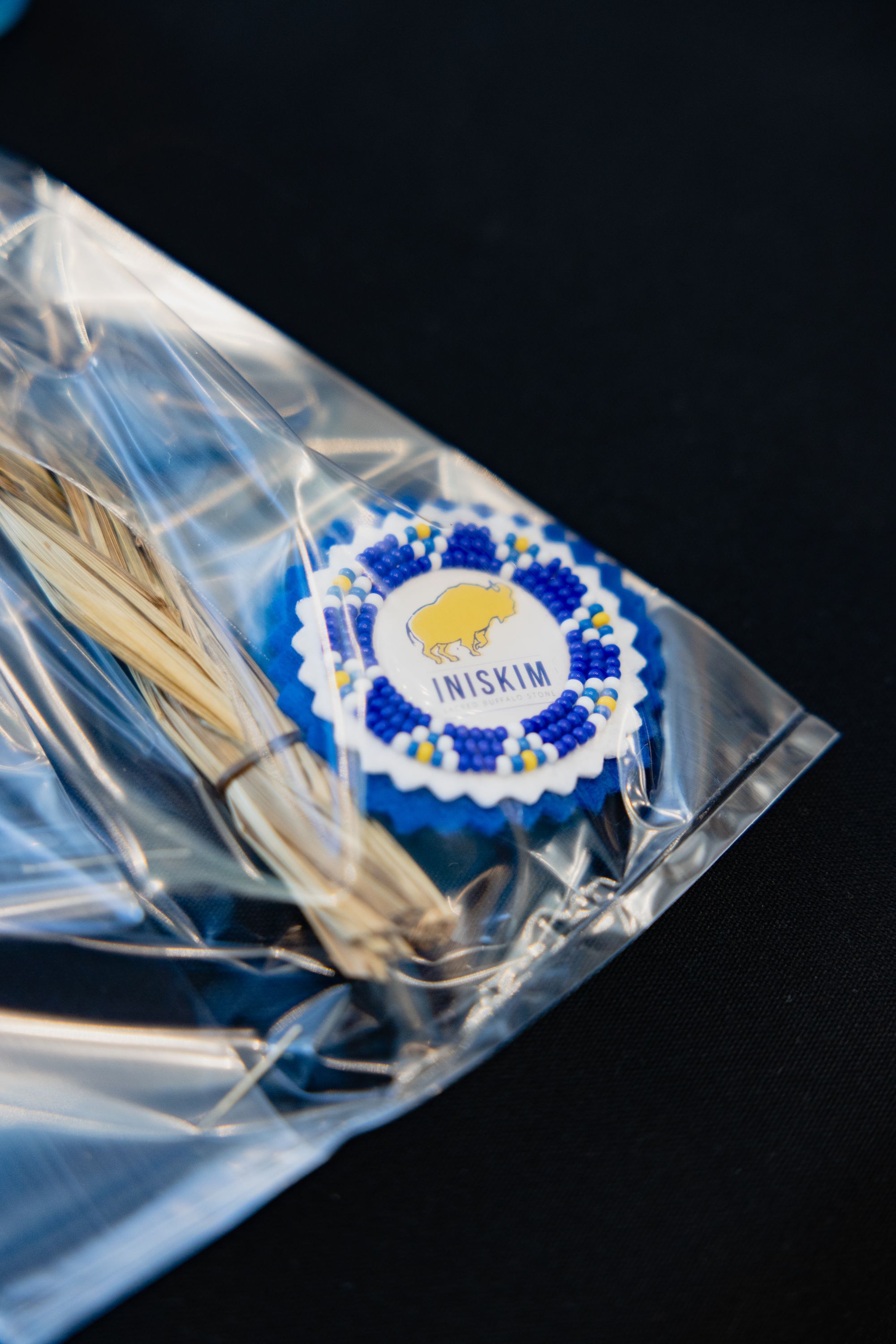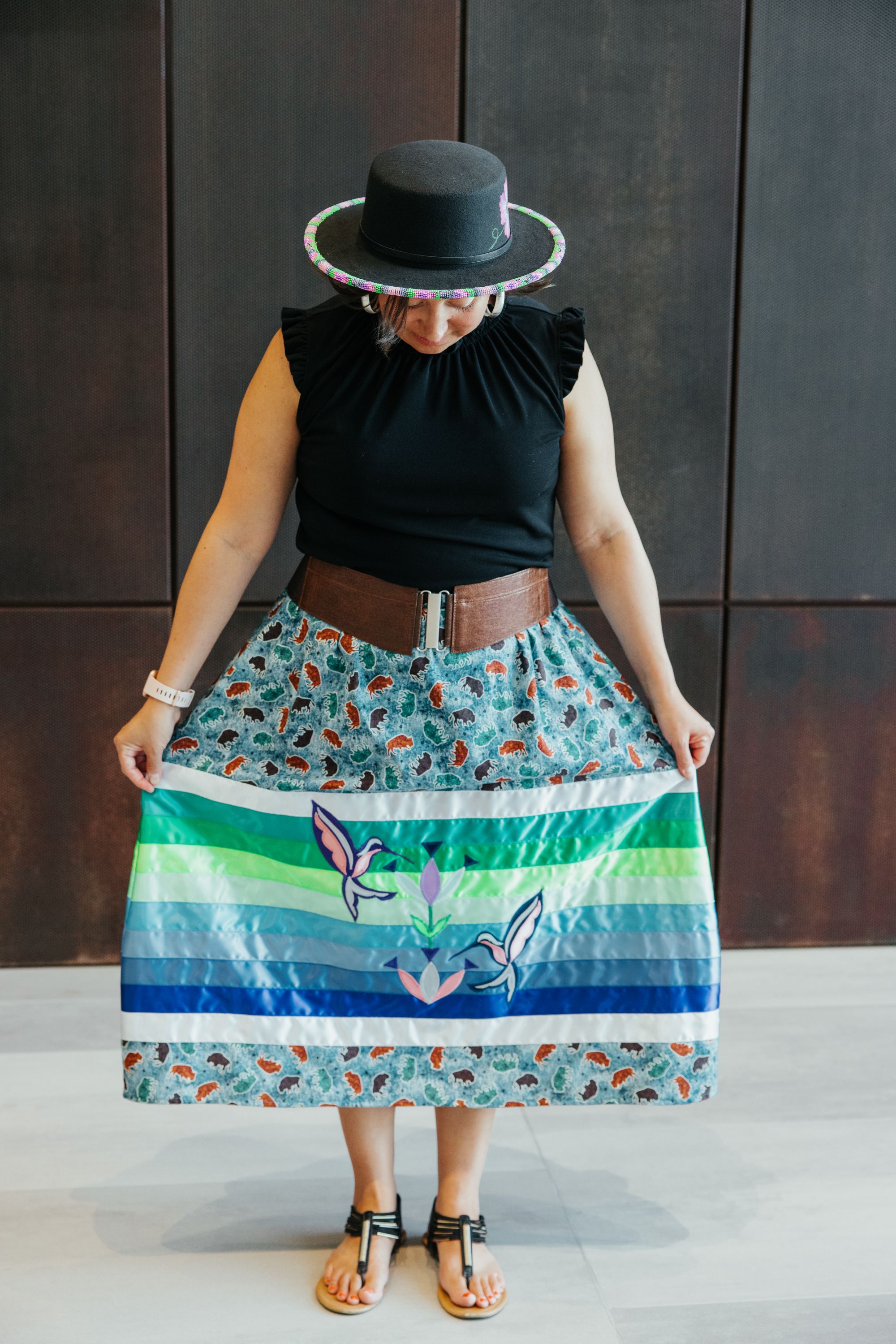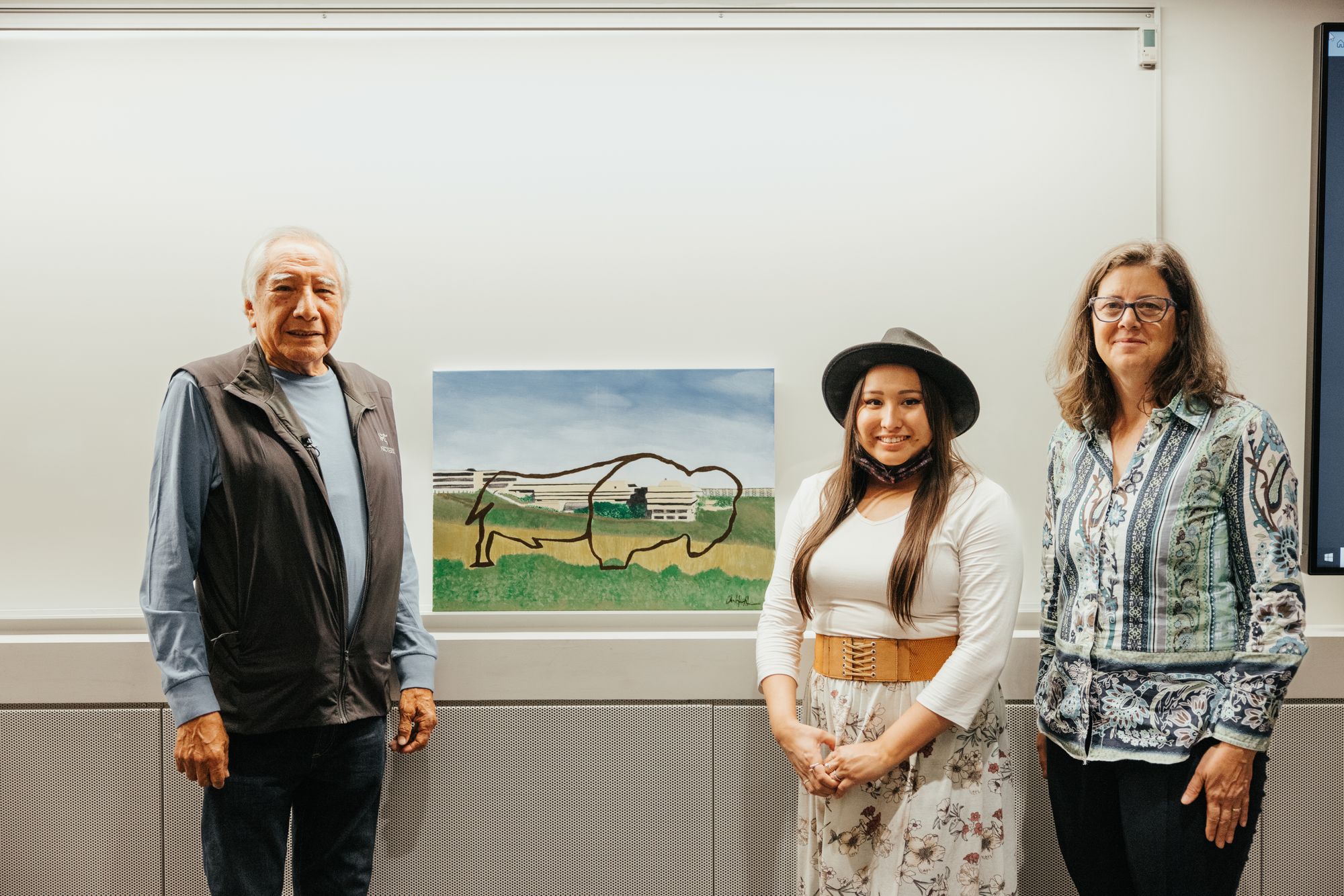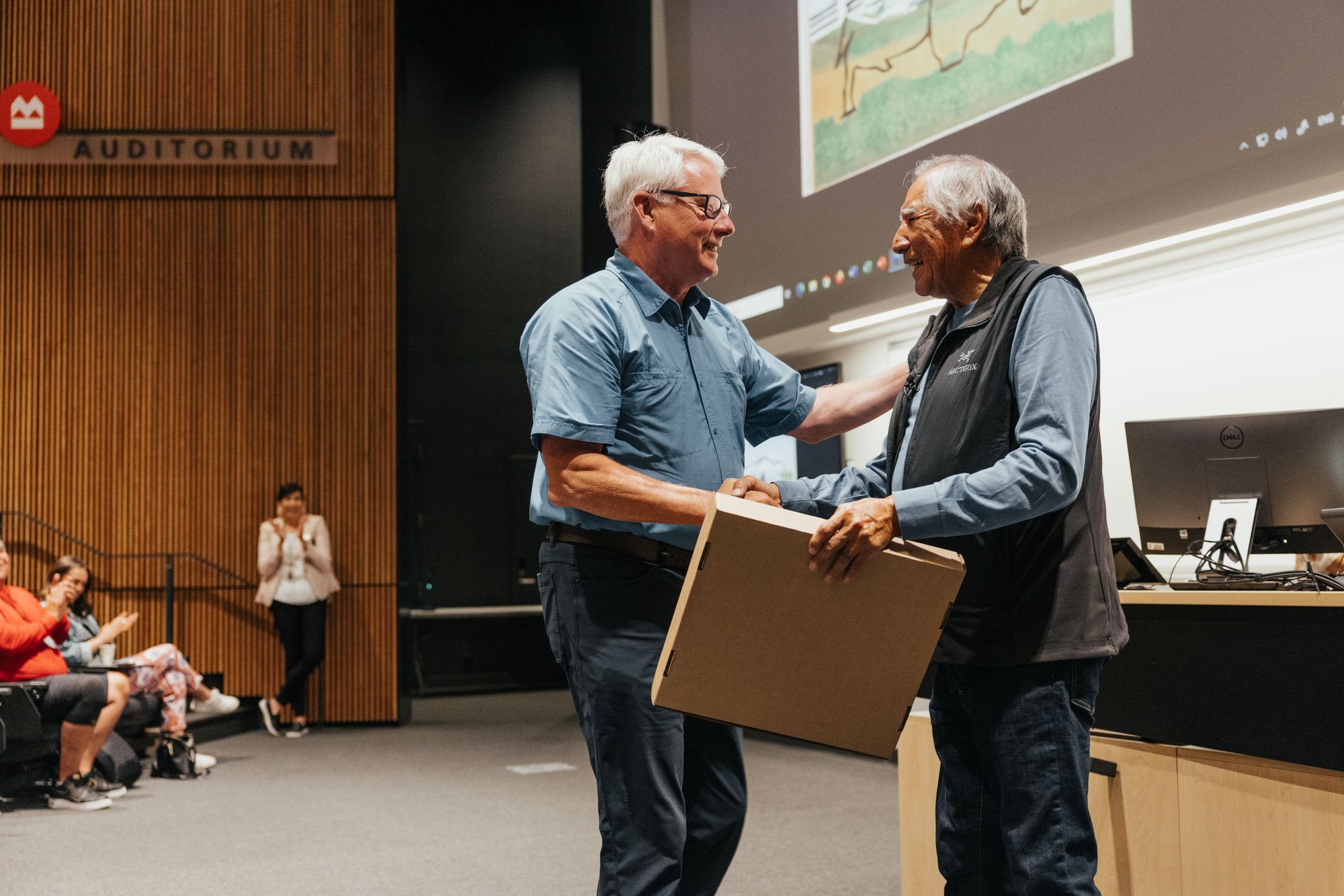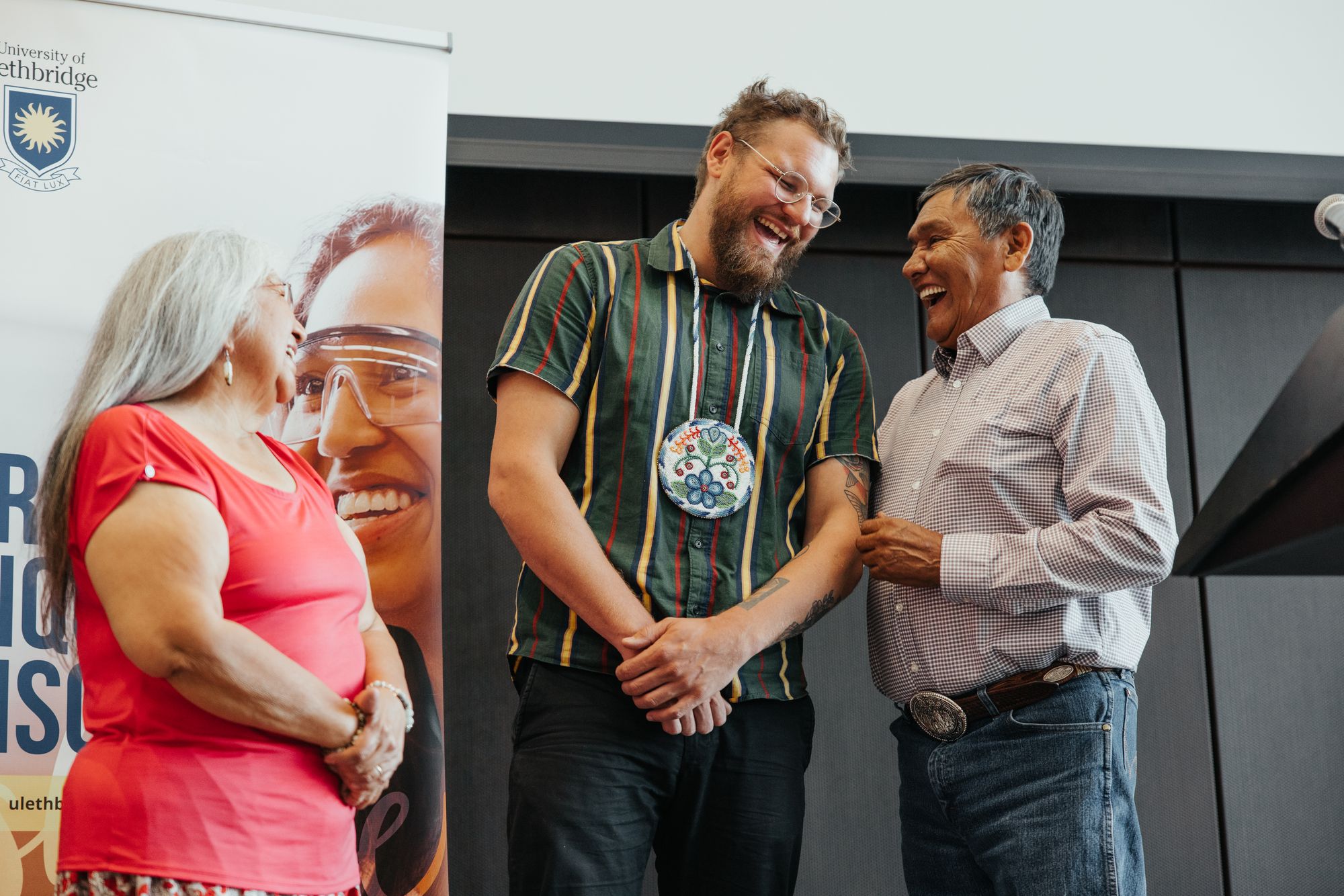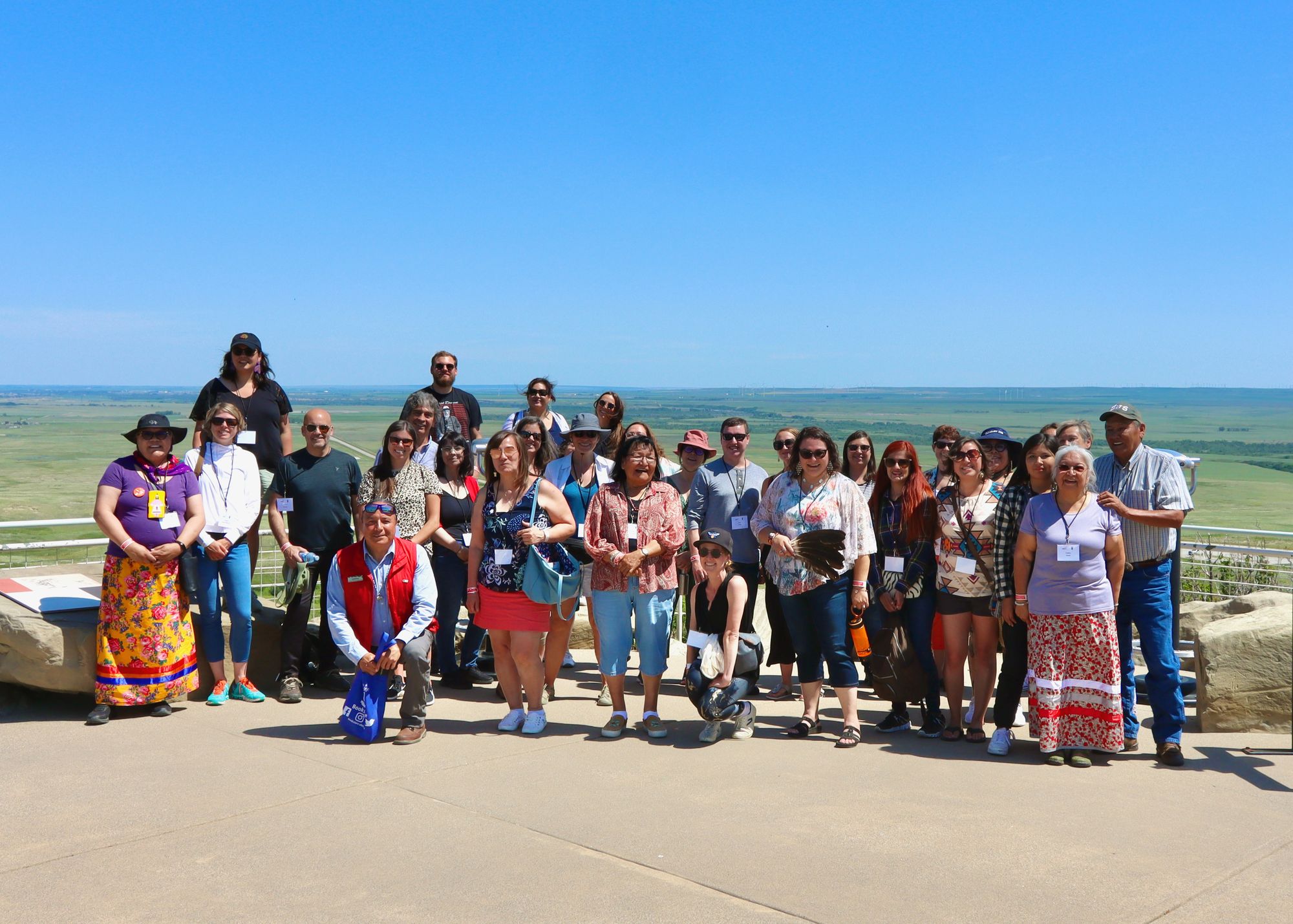Dr. Leroy Little Bear (BASc (BA) ’72, DASc ’04), Iikaisskini (Low Horn), tells the story of The Three Sisters and their gifts to Indigenous Peoples to a captivated audience. The gifts of The Three Sisters are represented by corn, beans and squash. As Little Bear explains, the corn provides the climbing pole for the beans, which provides nutrition for the corn and squash, while the squash provides a protective covering for the plants. They are a community and their success depends on one another.
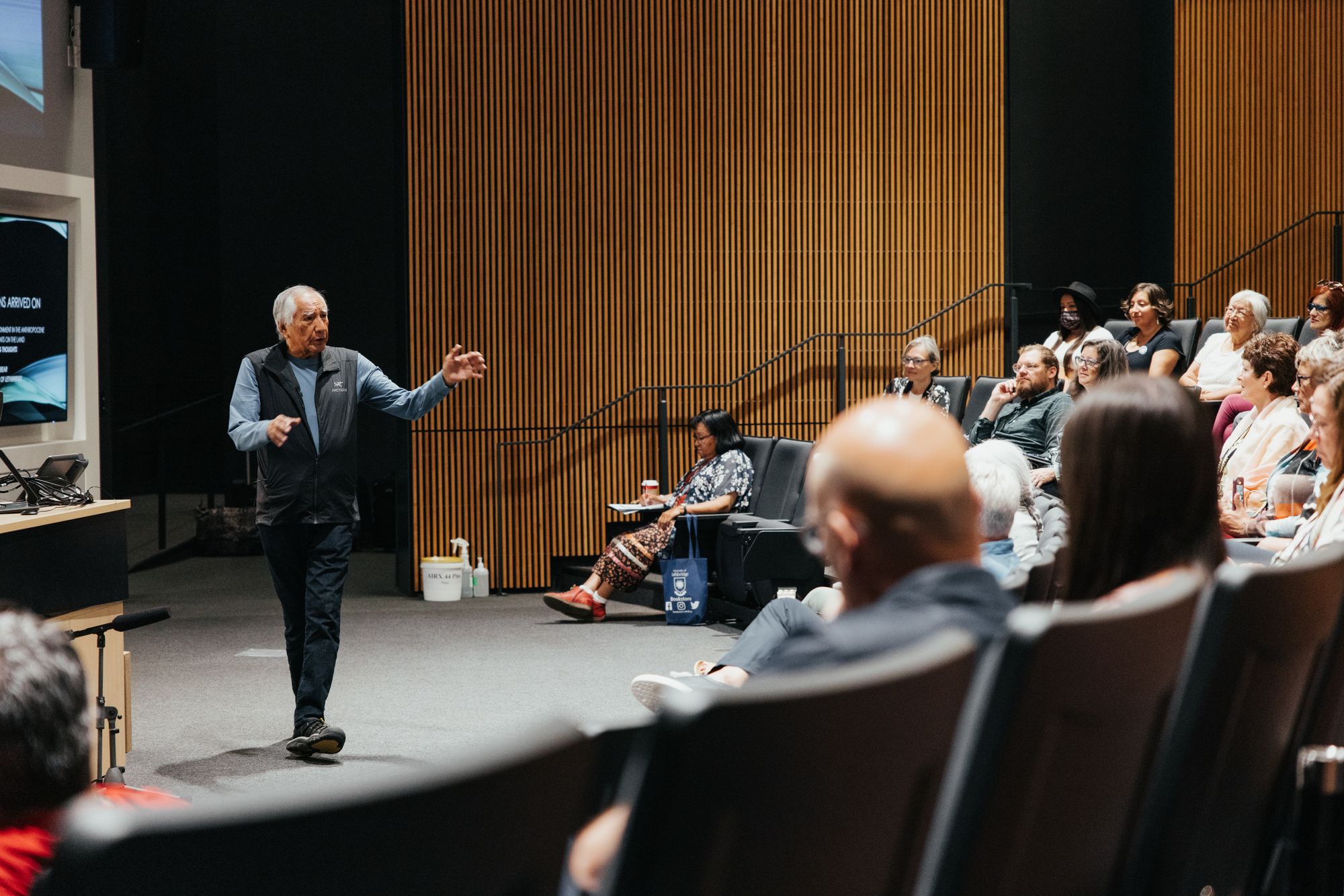
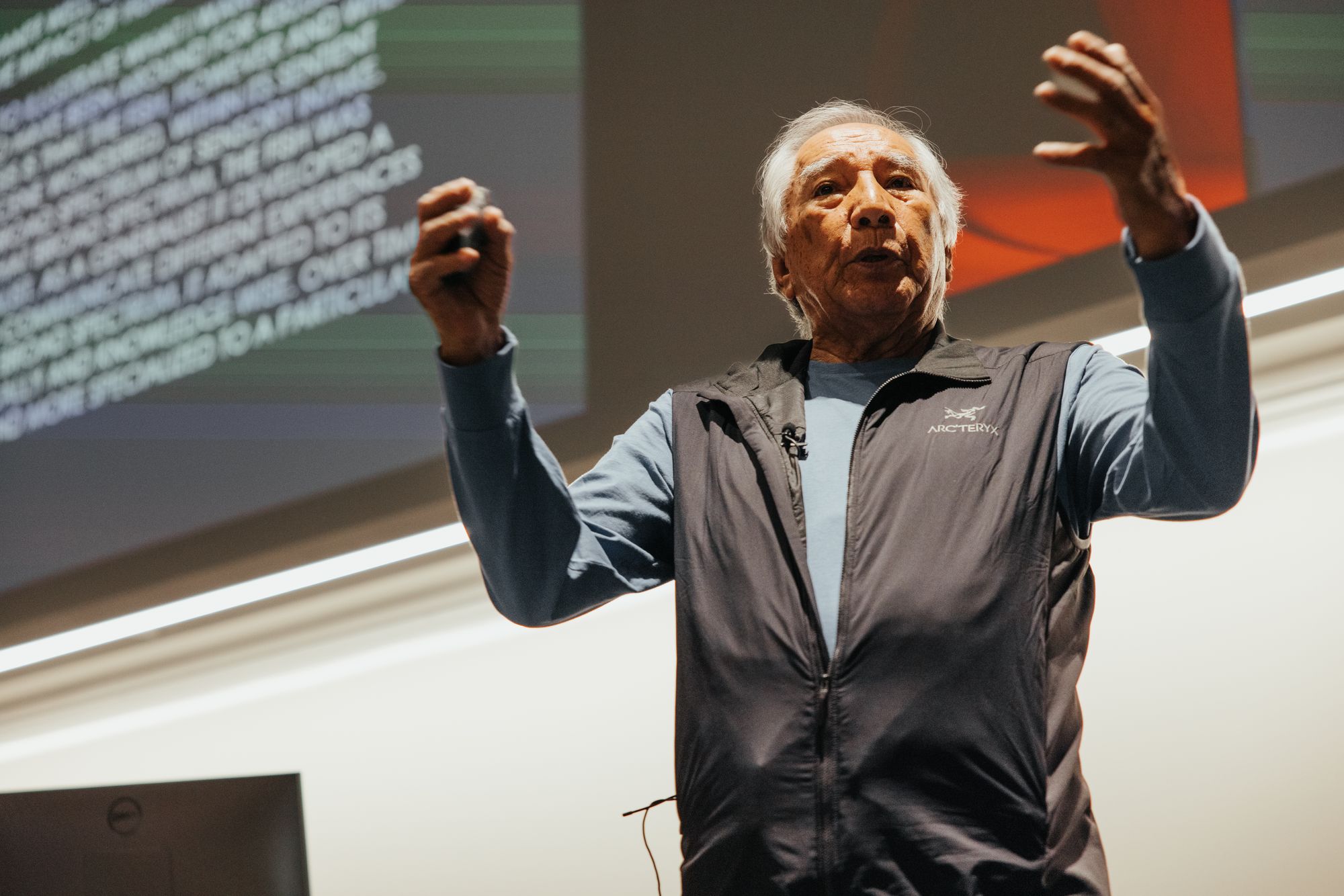
This metaphor illustrates an important partnership that is blossoming in southern Alberta between the University of Lethbridge, the Blackfoot Confederacy and the Mastercard Foundation. ULethbridge and the Blackfoot Confederacy have had a long, historical working relationship, and the inclusion of the Mastercard Foundation completes the Three Sisters relationship with regard to Indigenous education.
In partnership with the Blackfoot Confederacy and ULethbridge, the Mastercard Foundation provides the resources, or, nutrition to build learning environments that are conducive to Indigenous Ways of Knowing and Learning. This in turn supplies Indigenous students with cultural and academic knowledge that they can then share with others for the benefit of their communities, completing the Three Sisters relationship between these groups.
The success of this relationship is prominently illustrated by the EleV program. The Mastercard Foundation has brought the EleV program to ULethbridge as an initiative to support Indigenous student education and employment. Consistent with the Anishinaabe principle of Mino Bimaadiziwin, living in a good way, EleV focuses on regional and co-created systems change with Indigenous communities.
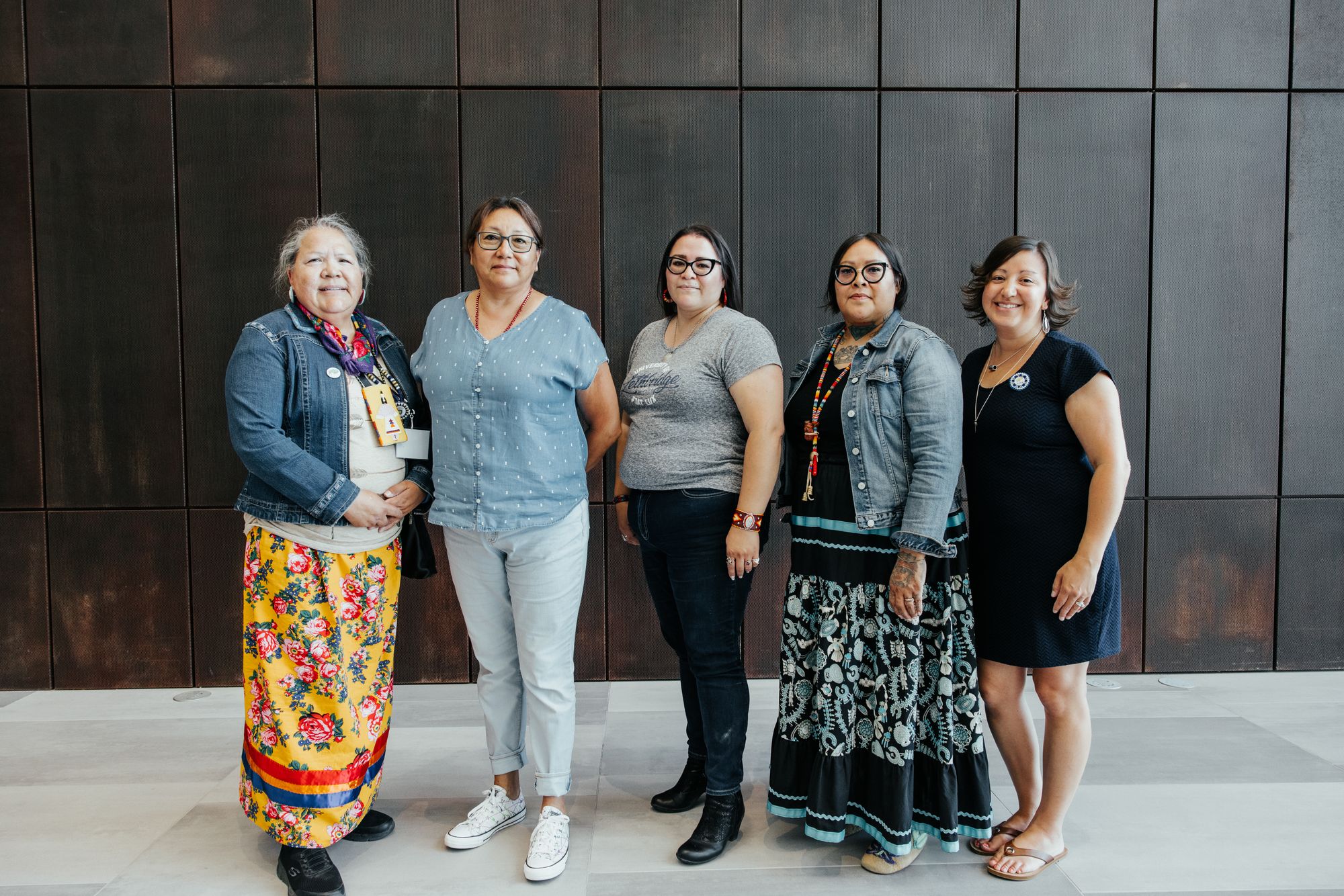
At ULethbridge, this is exemplified by the EleV Navigators, Iksisstowaapi Kanakkaatsi (Going All Out Society), who work in the Blackfoot communities of Kainai, Piikani and Siksika to provide in-community supportive services and communication to guide Indigenous learners along their education and career pathways.
“Our partnership is grounded in a holistic approach, where the University of Lethbridge will work collaboratively with our partners to ensure the program meets the unique needs and desires of each Blackfoot community, keeping Indigenous youth at the forefront,” says Shanda Webber (BA '05), Naamoipiiksii (Hummingbird), ULethbridge manager of strategic Indigenous learning initiatives.
“Our navigator team understands that everyone in the community plays an important role in assisting youth to navigate their way to post-secondary and beyond. It is our hope that this program will forge a path for our Indigenous youth in helping them become the future leaders and caregivers of tomorrow and for future generations to come,” Webber adds.
The EleV program is still in its infancy at ULethbridge, but there is a network of partnerships behind the scenes, working diligently to ensure the program’s success. These partners from across Canada recently gathered to share space and reflect on the work that has been done and discuss the ways they can move forward to continue working towards their goals.
Recently, ULethbridge hosted representatives from the Mastercard Foundation and from nine anchor partners across Canada to share lessons, best practices, innovations and reflections from the past year and discuss how each partner is working to create systems change in the communities they serve.
Jennifer Brennan, head of Canada programs with the Mastercard Foundation, says being able to create connections and strengthen the bonds between the different institutions at the gathering was the highlight of the event. Brennan adds that she is leaving the gathering with a full heart and the knowledge that the EleV program is on the right track.
“The work is complicated, and I think it's easy to feel very overwhelmed by those complexities. Being able to share that with one another, it just makes us more creative and more energetic to do the work. I'm also thinking about the ways in which we keep those conversations going. How can we meet more in person? How can we create different forums that dive a little deeper into some of the topics?”
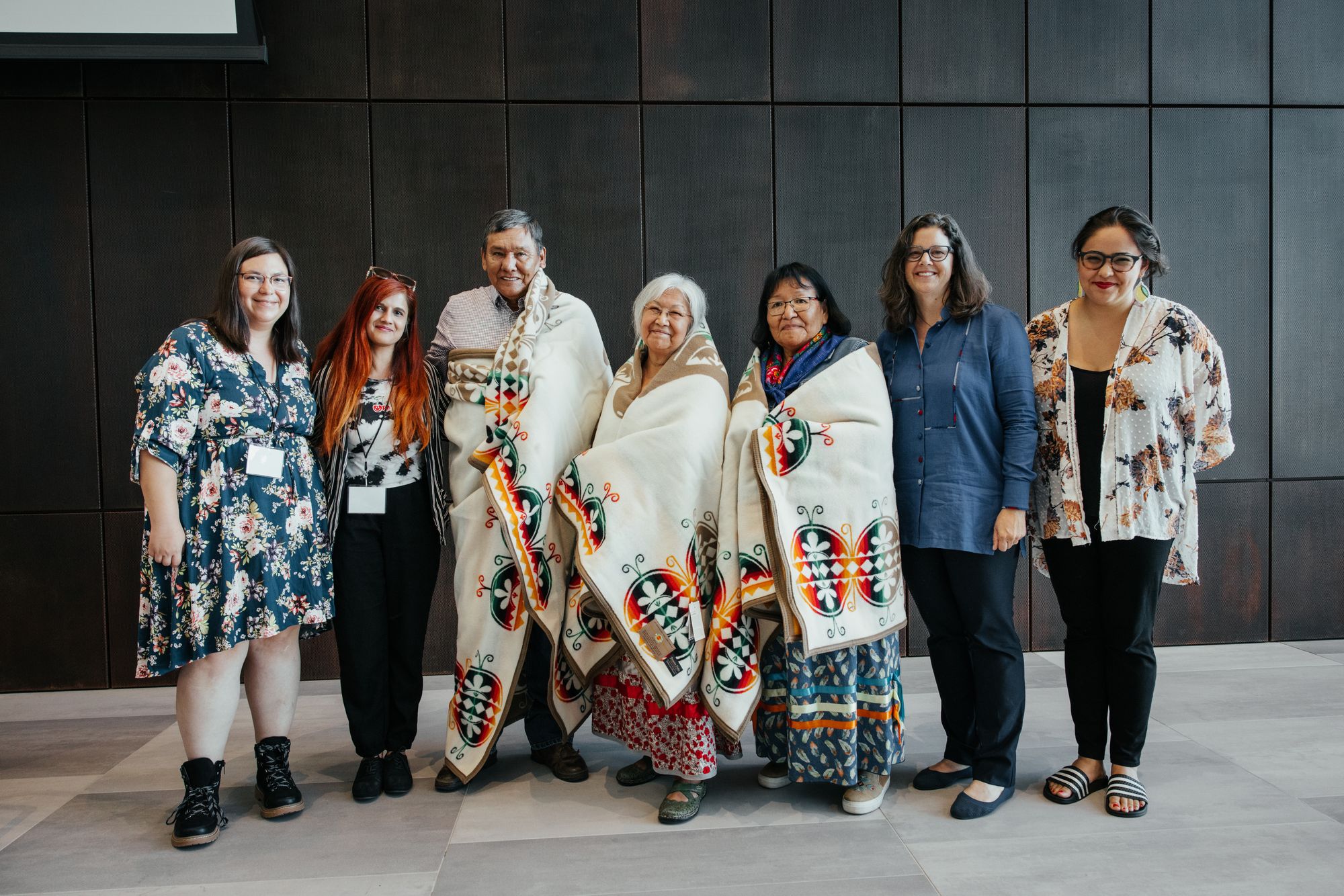
During the gathering, several discussions were had on how the various institutions could bring about and co-create systems change in their organizations. Systems change analyzes how social change can be brought about through various methods and forms of collaboration, such as policies, practices, power dynamics, mindsets, resource flows and relationships.
In this context, it involves investing in Indigenous knowledge and expertise and diversifying the roles and responsibilities of the groups involved in creating the change. What emerged from the discussion was the importance of ceremony and reflection in doing this work and acknowledging that shared leadership structures will allow partnerships to go further and accomplish more.
“In working towards systems change at the University of Lethbridge, it is integral that we conduct this work through a holistic lens or two-eyed seeing approach,” explains Webber.
“It is showing the importance of making space for both the Indigenous and Western worldviews so they can work in harmony with each other for the greater good of our youth and future generations to come.”
Discussions on systems change prefaced the Keynote talk of the gathering by Little Bear, who spoke on “jagged worldviews colliding” and the importance of diversity in educational partnerships. Little Bear notes that creativity is needed to build “generalist” organizations, where multiple cultures co-exist and its diversity is its strength. By bringing the Blackfoot Confederacy, ULethbridge and the Mastercard Foundation together, the sharing of knowledge and resources contributes to a generalist community that is able to engage in two-eyed seeing and utilize diversity and creativity in its path to success.
Brennan says she is proud to build relationships with other organizations in mutually beneficial ways.
“We're really trying to bring forward the values of listening and humility, and really understand that we can have so much impact when we co-create and when everyone is bringing forward the resources, the ideas and the energy,” she says. “From the very beginning of the work of the Foundation here in Canada, there was this real idea that we needed to get behind, which is strength in solutions.”
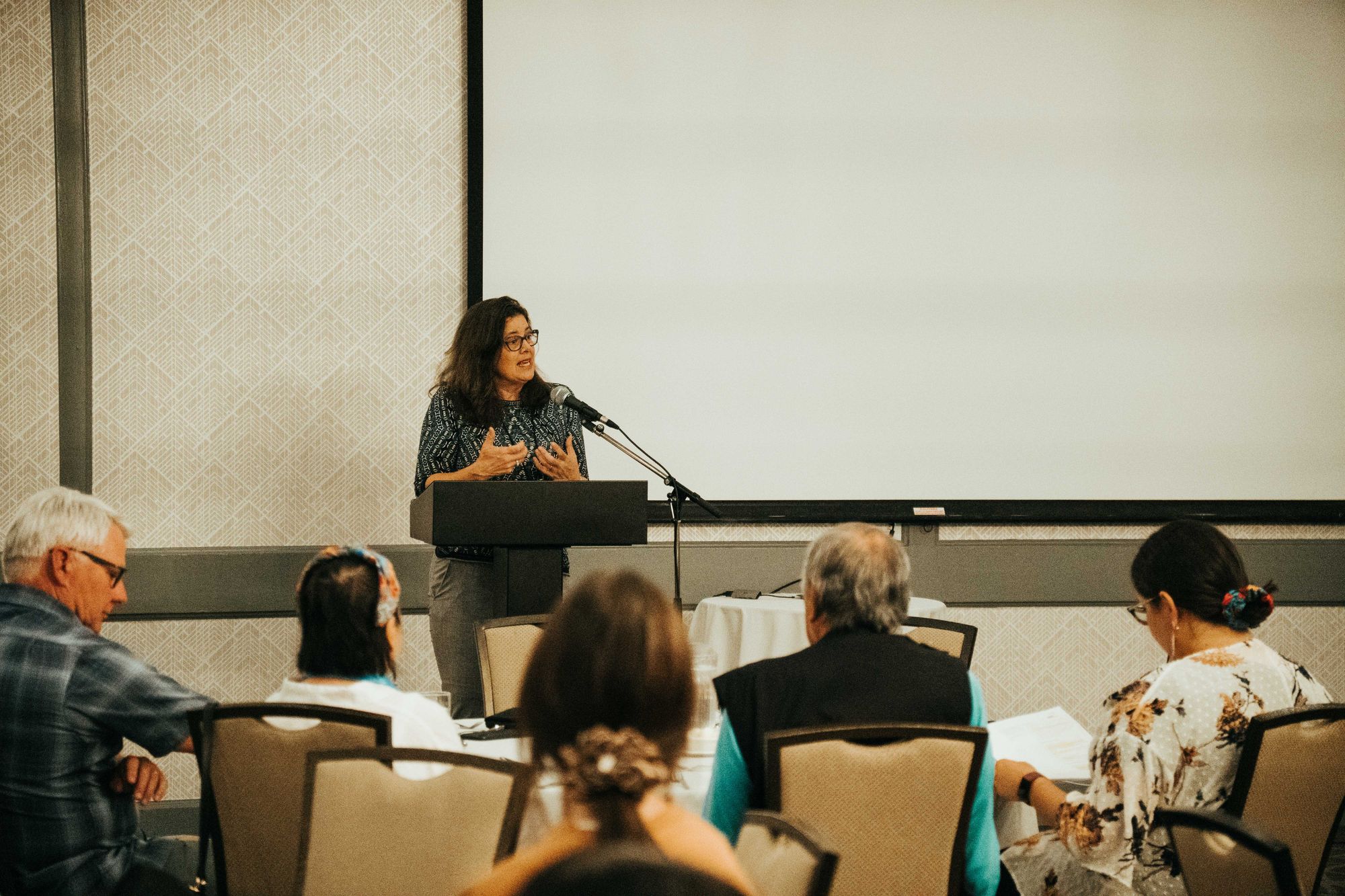
Brennan adds that the idea that Little Bear shared about the Mastercard Foundation being in close relationship with ULethbridge and the Blackfoot Confederacy is something she is excited to share with her own colleagues and think about what that responsibility looks like in practice.
“There's a different way in which we think about philanthropy. There’s these passive models of philanthropy that are more like charity; it's very top-down and it's like an extension of colonialism. Our Foundation from the very beginning was never that, we had to think about what our role was and how we're value-added. Thinking about us as one of the Three Sisters is a beautiful thing and I'm honoured to be part of that concept, which really challenges and decolonizes the way that we think about philanthropy.”
